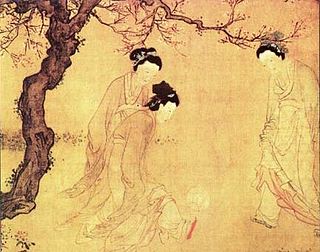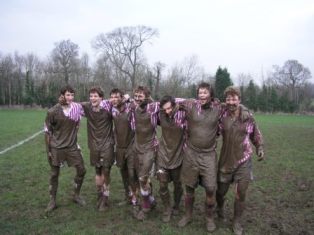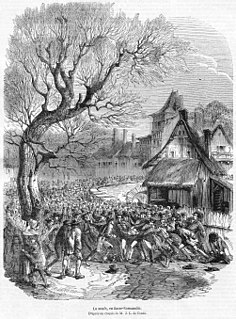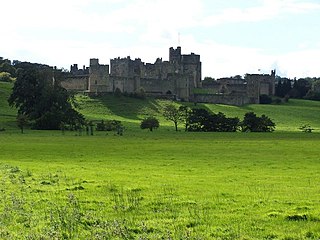 W
WMedieval football is a modern term used for a wide variety of the localised informal football games which were invented and played in Europe during the Middle Ages. Alternative names include folk football, mob football and Shrovetide football. These games may be regarded as the ancestors of modern codes of football, and by comparison with later forms of football, the medieval matches were chaotic and had few rules.
 W
WMedieval football is a modern term used for a wide variety of the localised informal football games which were invented and played in Europe during the Middle Ages. Alternative names include folk football, mob football and Shrovetide football. These games may be regarded as the ancestors of modern codes of football, and by comparison with later forms of football, the medieval matches were chaotic and had few rules.
 W
WAtherstone is a market town and civil parish in North Warwickshire, Warwickshire, England. Located in the far north of the county, Atherstone forms part of the border with Leicestershire along the A5 national route, and is only 4.5 miles from Staffordshire. It lies between the larger towns of Tamworth and Nuneaton and contains the administrative offices of North Warwickshire Borough Council.
 W
WThe Atherstone Ball Game is a "Medieval football" game played annually on Shrove Tuesday in the English town of Atherstone, Warwickshire. The game honours a match played between Leicestershire and Warwickshire in 1199, when teams used a bag of gold as a ball, and which was won by Warwickshire. At one time similar events were held in many towns throughout England, but Atherstone's is now one of at last three such games that are still played each year at Shrovetide, the others being the Royal Shrovetide Football match held in Ashbourne, Derbyshire, and The Alnwick Shrovetide Football Match in Alnwick, Northumberland.
 W
WThe Ba game is a version of medieval football played in Scotland, primarily in Orkney and the Scottish Borders, around Christmas and New Year.
 W
WCalcio fiorentino is an early form of football that originated in 16th-century Italy. Once widely played, the sport is thought to have started in the Piazza Santa Croce in Florence. There it became known as the giuoco del calcio fiorentino or simply calcio; which is now also the name for association football in the Italian language. The game may have started as a revival of the Roman sport of harpastum.
 W
WCnapan is a Welsh form of Celtic medieval football. The game originated in, and seems to have remained largely confined to, the western counties of Wales, especially Carmarthenshire, Ceredigion and Pembrokeshire. According to George Owen of Henllys, in his Description of Pembrokeshire (1603), cnapan had been "extremely popular in Pembrokeshire since greate antiquitie [sic]". Cnapan was one of the traditional ball games played to celebrate Shrovetide and Eastertide in the British Isles. These games were the forerunners of the codified football games first developed by Public Schools which led to the creation of Association football and rugby football in the 19th century. Cnapan continued to be played until the rising popularity of Rugby Union Football resulted in the game falling into decline.
Hurling is an outdoor team game played only in Cornwall, United Kingdom. It is played with a small silver ball. The sport is not to be confused with the Irish game, also called hurling; the two sports are fundamentally different in equipment and game-play.
 W
WCuju or Ts'u-chü, is an ancient Chinese game which is "thought to have been the earliest form of football". It is a competitive game that involves kicking a ball through an opening into a net. The use of hands is not allowed. Invented in the Han dynasty, it is recognized by FIFA as the earliest form of football for which there is evidence, being first mentioned as an exercise in a Chinese military work from the 3rd–2nd century BC. It was also played in Korea, Japan and Vietnam.
 W
WDuns is a town in the Scottish Borders, Scotland. It was the county town of the historic county of Berwickshire.
 W
WThe Eton wall game is a game that originated at and is still played at Eton College. It is played on a strip of ground 5 metres wide and 110 metres long next to a slightly curved brick wall erected in 1717. It is one of two codes of football played at Eton, the other being the Eton Field Game.
 W
WHarpastum, also known as harpustum, was a form of ball game played in the Roman Empire. The Romans also referred to it as the small ball game. The ball used was small and hard, probably about the size and solidity of a softball. The word harpastum is the latinisation of the Greek ἁρπαστόν (harpaston), the neuter of ἁρπαστός (harpastos), "carried away", from the verb ἁρπάζω (harpazo), "to seize, to snatch".
 W
WHarrow football is a code of football played between two teams of eleven players, each attempting to win by scoring more bases (goals) than their opponent. Harrow Football is played predominantly with the feet, but players may use any part of their body including, in certain circumstances, their hands and arms to propel the ball. The leather ball is shaped like a giant pork pie, about 18 inches in diameter and 12 inches (300 mm) deep. It tends to soak up mud and water and become extremely heavy.
 W
WThe Haxey Hood is a traditional event in Haxey, North Lincolnshire, England, on 6 January, the Twelfth Day of Christmas.
 W
WKemari (蹴鞠) is an athletic game that was popular in Japan during the Heian period. It resembles a game of football (soccer) or hacky sack. Kemari has been revived in modern times.
 W
WKī-o-rahi is a ball sport played in New Zealand with a small round ball called a 'kī'. It is a fast-paced game incorporating skills similar to rugby union, netball and touch. Two teams of seven players play on a circular field divided into zones, and score points by touching the 'pou' and hitting a central 'tupu' or target. The game is played with varying rules depending on the geographic area it is played in. A process called Tatu, before the game, determines which rules the two teams will use.
 W
WLa soule, later choule or sioule, is a traditional team sport that originated in Normandy and Picardy. The ball, called a soule, could be solid or hollow and made of either wood or leather. Leather balls would be filled with hay, bran, horse hair or moss. Sometimes the balls had woolen pompons.
 W
WLelo or lelo burti, literally a "field ball [playing]", is a Georgian folk sport, which is a full contact ball game, and very similar to rugby. Within Georgian rugby union terminology, the word lelo is used to mean a try, and the popularity of rugby union in Georgia has also been attributed to it. In 2014, lelo burti, along with khridoli, a traditional martial art, was inscribed by the government of Georgia as a "nonmaterial monument" of culture.
 W
WMarn Grook or marngrook, from the Woiwurung language for "ball" or "game", is a traditional Indigenous Australian football game played at gatherings and celebrations by sometimes more than 100 players.
 W
WThe Royal Shrovetide Football Match is a "Medieval football" game played annually on Shrove Tuesday and Ash Wednesday in the town of Ashbourne in Derbyshire, England. Shrovetide ball games have been played in England since at least the 12th century from the reign of Henry II (1154–89). The Ashbourne game also known as "hugball" has been played from at least c.1667 although the exact origins of the game are unknown due to a fire at the Royal Shrovetide Committee office in the 1890s which destroyed the earliest records. One of the most popular origin theories suggests the macabre notion that the 'ball' was originally a severed head tossed into the waiting crowd following an execution. Although this may have happened, it is more likely that games such as the Winchelsea Streete Game, reputedly played during the Hundred Years' War with France, were adaptations of an original ball game intended to show contempt for the enemy.
 W
WScoring the Hales is the name of a large scale shrovetide football match played yearly in Alnwick, Northumberland. Once a street contest, it has now moved to a field named The Pastures across the River Aln from Alnwick Castle.
 W
WSepak takraw, or kick volleyball, is a sport native to Southeast Asia. Sepak takraw differs from the similar sport of footvolley in its use of a rattan ball and only allowing players to use their feet, knee, and head to touch the ball.
 W
WThe Shrove Tuesday Football Ceremony of the Purbeck Marblers is a series of events dating back many years which take place in Corfe Castle, Dorset. The events occur on the date that new apprentices are introduced to the Company of Marblers and Stonecutters of Purbeck. The freemen gather in the Fox Inn West Street where they wait till Corfe Church chimes at twelve noon, where they make their way into the Town Hall, which is reputedly the smallest town hall in the country. Any apprentices wishing to be admitted into the order wait in the Fox Inn.
 W
WWinchester College football, known as Winkies, is a code of football played at Winchester College. It is akin to the Eton Field and Wall Games and Harrow Football in that it enjoys a large following from Old Wykehamists but is not played outside the community directly connected to Winchester College. The Winkies season is during Common Time (January–March), the second term of the academic year.
 W
WWoggabaliri is a traditional Indigenous Australian "co-operative kicking volley game".